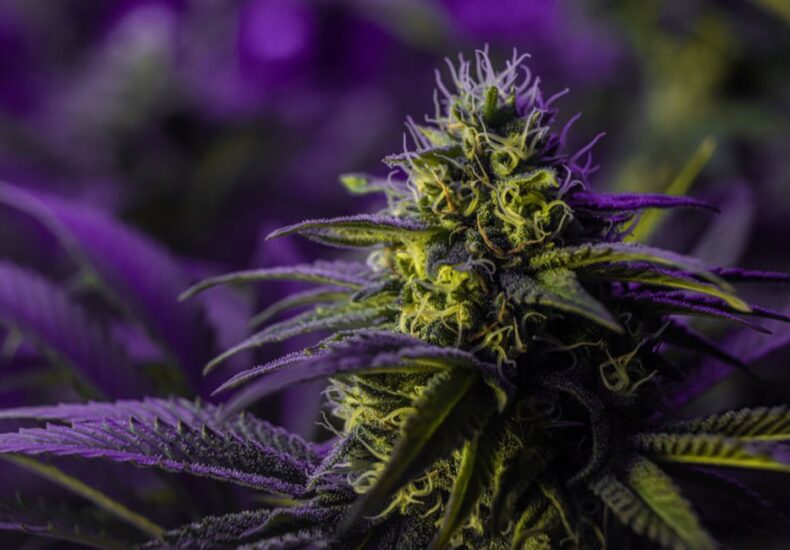
Purple THCa Strain Potential
The cannabis industry has seen a surge in interest surrounding various strains and their unique properties. Among these, the Purple THCa strain has garnered attention for its potential benefits and distinctive characteristics. This article explores the potential of the Purple THCa strain, examining its properties, benefits, and the science behind its effects.
Understanding THCa
Before delving into the specifics of the Purple THCa strain, it’s important to understand what THCa is. Tetrahydrocannabinolic acid (THCa) is a non-psychoactive cannabinoid found in raw cannabis plants. Unlike THC, THCa does not produce a high when consumed. Instead, it offers a range of potential therapeutic benefits.
THCa vs. THC
THCa and THC are often confused, but they have distinct differences. THCa is the acidic precursor to THC. When cannabis is heated through smoking, vaping, or cooking, THCa converts to THC, the compound responsible for the psychoactive effects. This conversion process is known as decarboxylation.
- THCa is non-psychoactive.
- THC is psychoactive and responsible for the high.
- THCa converts to THC through heat.
The Unique Characteristics of Purple THCa Strain
The Purple THCa strain is known for its vibrant purple hues and high THCa content. This strain is a favorite among cannabis enthusiasts for its potential therapeutic benefits and unique appearance.
Appearance and Aroma
The Purple THCa strain is easily recognizable by its deep purple color, which is a result of anthocyanin pigments. These pigments not only give the strain its distinctive look but may also offer antioxidant properties. The aroma of this strain is often described as earthy with hints of berry and grape.
Potential Benefits
Research into the potential benefits of THCa is still in its early stages, but preliminary studies and anecdotal evidence suggest several promising effects:
- Anti-inflammatory Properties: THCa may help reduce inflammation, making it a potential option for those with inflammatory conditions.
- Neuroprotective Effects: Some studies suggest that THCa may have neuroprotective properties, which could be beneficial for neurodegenerative diseases.
- Anti-emetic Effects: THCa may help reduce nausea and vomiting, offering potential relief for patients undergoing chemotherapy.
Scientific Studies and Case Examples
While research on THCa is limited, several studies have highlighted its potential benefits. A study published in the British Journal of Pharmacology found that THCa exhibited anti-inflammatory properties in animal models. Another study in the Journal of Neuroimmune Pharmacology suggested that THCa might have neuroprotective effects.
In addition to scientific studies, anecdotal evidence from users of the Purple THCa strain supports its potential benefits. Many users report relief from chronic pain, inflammation, and nausea without the psychoactive effects associated with THC.
Consumption Methods
To experience the benefits of the Purple THCa strain, it’s important to consume it in a way that preserves its THCa content. Here are some popular methods:
- Raw Consumption: Consuming raw cannabis leaves or flowers in smoothies or salads preserves THCa.
- Tinctures: THCa tinctures can be taken sublingually for quick absorption.
- Topicals: THCa-infused creams and balms can be applied directly to the skin for localized relief.
Legal Considerations
The legal status of THCa varies by region. In some areas, THCa is considered legal because it is non-psychoactive. However, it’s important to be aware of local laws and regulations regarding cannabis and its derivatives.
Conclusion
The Purple THCa strain offers a unique combination of potential therapeutic benefits and a distinctive appearance. While research is still ongoing, early studies and user experiences suggest that this strain may provide relief from inflammation, neurodegenerative conditions, and nausea without the psychoactive effects of THC. As interest in cannabis continues to grow, the Purple THCa strain stands out as a promising option for those seeking alternative therapeutic solutions.
Recent Posts
- Calm Pooches: The Power of CBD for Pets with Anxiousness
- From Discomfort Relief to Stress And Anxiety Reduction: The Versatile Perks of CBD Oil for Dogs
- Turning Paper Properties right into Substantial Riches: The 401( k) to Gold IRA Transition
- Augusta Valuable Metals: Making Sense of Market Patterns
- Mushroom Coffee: The Secret Active Ingredient for a Healthier Brew
- bwtpzlfvnqkm
- Clyvatorn
- dbkqlptxfrzn
- Delta 9 Gummies
- dnflxkwjbpqt
- FizzletronZqwrp
- fknqwmtlzpxr
- flarnobexium
- glebrenfixor
- Gold IRA Companies
- Gold IRA Company
- Gralkomiz
- gzfpwtlxqkrn
- Hczgnkxjvqrl
- jmpxrdbtvwqh
- kiztroplene
- kjfbwqzglrpa
- klibtonarlex
- klontriperux
- kzfxptnqwlrm
- Lmksrpyjdvft
- lrbzwtqnfpmk
- mexlavuzonik
- Mjnsbfcvrwp
- mqnxfrlpvzbg
- Mushroom Coffee
- nmrxgzplftwq
- norkifyplin
- Peptides
- plavixomelix
- plenoriklafix
- plonixtralefx
- PluxitojDrezqnip
- pzgrqltnwmxf
- pzrqwlfnxktm
- Qczmoye
- Qfwzrlk
- qixplatormex
- rdbkqpztwxnl
- rlfkmtzwdcpq
- rqfkpnzlwtxb
- rwlvbdtkpfnq
- slqhtyvkmjfw
- THCa Flowers
- tplxgbfqnzha
- traxoplimzerk
- Uncategorized
- uvtrosphean
- veplonifreal
- vepremilarnik
- vlotrimperix
- Vmwsqzjtrbcd
- vxcltqdrnzkm
- Wibberfloog
- wobblefrengizmo
- wroxtinoplex
- wzrqtlfknxpm
- Xcwqkdbzvnlh
- xmpztskwqcrb
- xpkrztwflnqm
- xvpznwmjsqft
- yexalprozonik
- yfcopmlhzvkw
- yiptrazonklix
- zdmqnrltxbcp
- znhrpqwmfkcy
- zwtnlrqkpfxm